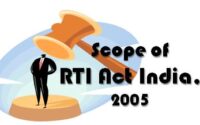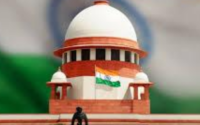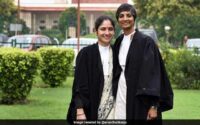MARRIAGES DURING COVID
This article is submitted by Rajat Pratap Singh of Amity University, Noida
INTRODUCTION
Since the outburst of the Covid-19 virus, the world has not been ordinary. Everything is either stopped or started working slowly. There has not been a single person who has not been affected by the virus. He has been harmed in some other way, either emotionally, mentally, or physically. There have been monetary losses as well.
In the same way, marriages in the country are also affected. Many of us had to cancel our marriages or get the dates changed. There are many precautionary measures as well which we need to take during the ceremony. A recent judgment by the Supreme Court upholds the High Court’s decision that under the Special Marriage Act, 1954, marriages can be done through video conferencing.
ISSUE WITH ONLINE MARRIAGES
The Delhi Government hasinformed the Delhi High Court that it cannot allow the registration of marriagesthrough video conferencing as the software required for the said purpose does not grant permission for the same. Marriage registration software is designed in the same way as the Aadhar application software, and the person who must get their pictures clicked should be present at that moment.
The case was highlighted when the NRI married couple living in the US applied for exemption from the process. This was because they could not come face-to-face due to the travelling restrictions in the world due to the covid-19. The advocate said that the couple has applied for a green card and must submit their marriage registration certificate. For this reason, the couple has asked to appear through video conferencing mode. Justice Rekha Palli said that if it is legally permitted, then the software needs to be changed, and if not, she or the court cannot do anything in the matter. Later, after the judgement of the Supreme Court allowing online marriages through The Special Marriage Act, 1954, she allowed it.
CASE
There was a recent case where the couple got married according to the Hindu rites and rituals. They have applied for marriage registration under the Special Marriage Act, 1954. Both the respondents were living abroad, and it was tough for them to travel during Covid times. They raised the matter before the single bench of the Punjab and Haryana High Court. They gave the decision against them. Later they went to the division bench of the same court. The High Court termed the online marriage valid this time. Special Leave Petition was filed in the Supreme Court.
The primary objection was that the High Court had considerably failed to consider and appreciate the necessary conditions laid down inSections 15 and 16 of the Special Marriage Act, 1954 that makes it mandatory the physical presence of the involved parties before the issuance of a marriage certificate. It was also argued that the High Court did not give any valid reasons over the matter as to why the State’s submissions and, more importantly, the judicial precedents, in this matter, do not apply to the present case. The Respondents, in response, relied upon the Supreme Court’s judgement in the case of State of Maharashtra vs Dr Praful B. Desai (2003). They also argued that the laws could not be interpreted and imposed so that it creates inconvenience for the parties. The Supreme Court had listened to the matter very closely.
The Supreme Court then held the Division Bench’s observations, and in this one, it was the correct decision.Then the Supreme Court accordingly dismissed the appeal petition as well. The Bench of Justices, which included Indira Banerjee and V. Ramasubramanian, stated that the law must march along with the innovation in the technology.Since the act was passed before any significant technological evolution, it can be reviewed now, and there should be necessary changes according to the situation. The Supreme Court stated that with the evolution in technology, there is the need to evaluate the laws and make some amendments. In these circumstances, the letters of the law cannot be interpreted rigidly. The court observed it. Further, the apex court also opined that the registration department is there to facilitate the parties to the marriage and not to create obstruction or hurdles.
CONCLUSION
We, humans, are going through hard times, and there is a need for we should step up and help each other in every possible way. The law is there for doing justice and making people’s lives more manageable and not more complex. In these trying times, we should make ways to make lives easier, and for that to happen, we have to take few necessary steps. The amendments in the law will be beneficial for the future as well. With the increase in technology with each passing year, we should make customary laws and increase our growth. The laws made way back in the 1950s would not be able to manage our lives presently. They need to be changed. With the change in the marriage law, there is no need to be physically available, and everything can be done through a webcam. It will save time and all the hardships that the couple has to undergo while travelling. It is very hard for couples living abroad to come to India just for the registration of marriage. With all sorts of travelling restrictions around the globe due to the pandemic, it further increases the struggle.
REFERENCES
This Article has been curated by Manasvi Madhumohan of Symbiosis Law School, Pune


